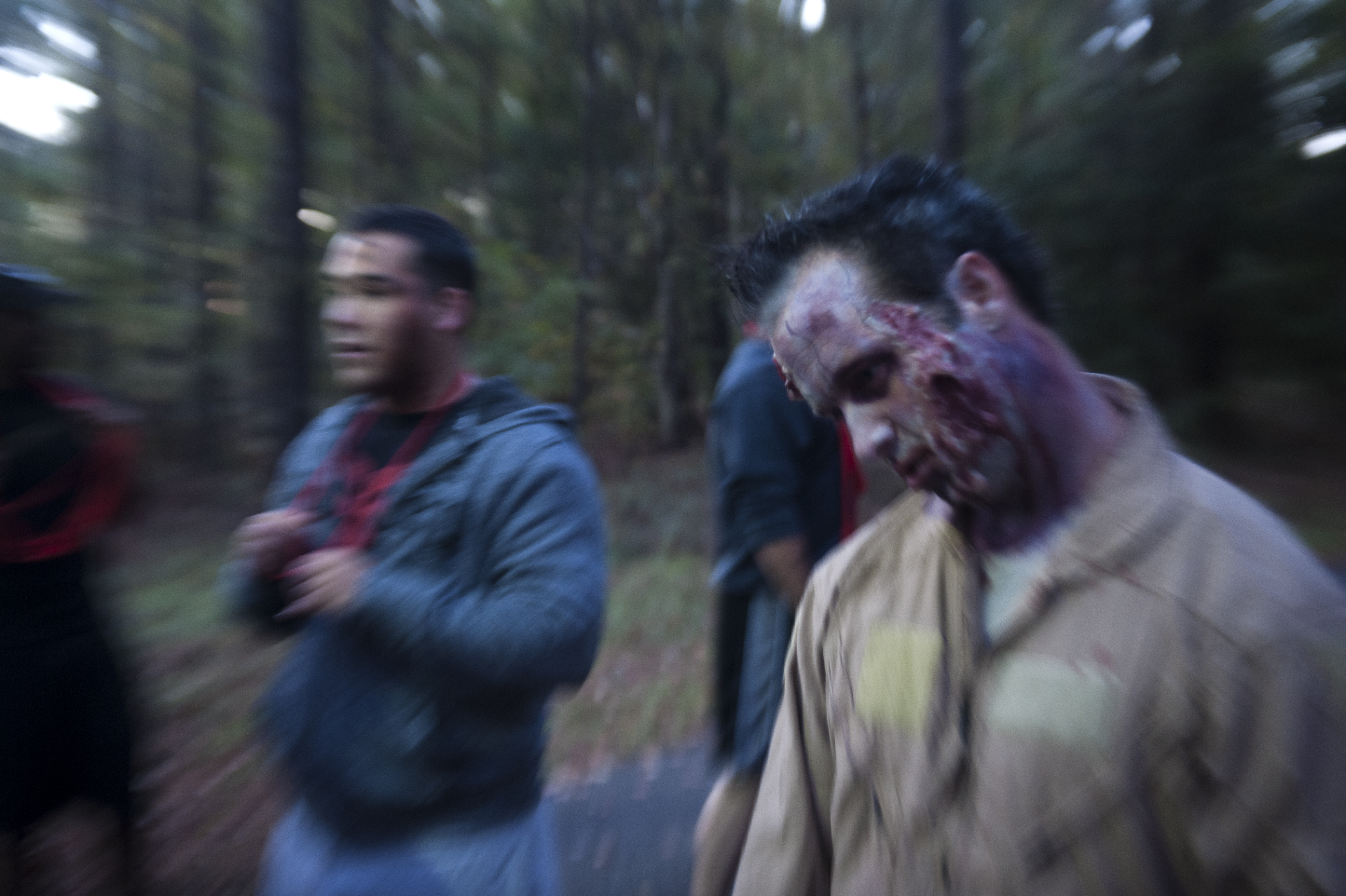When it comes to the active voice vs. the passive voice, it is helpful to ask the question who is the agent in an action. Who does what? Is the focus on someone who is doing something? Or is the focus on someone who is experiencing an action, i.e. someone who is being acted upon?
A typical sentence in the active voice can look like this:
Zombies follow the lone survivor of the Apocalypse.
Who does what? => Zombies follow. ‘Zombies’ is the subject of the sentence. The focus lies on the subject doing an action. ‘The lone survivor’ is the object in the sentence.
A typical sentence in the passive voice can look like this:
The lone survivor of the Apocalypse is followed by zombies.
Who does what? => Zombies follow. We do not get any information about what the lone survivor does; the focus lies on the action which happens to them.
The agent can even be left out if the focus is on what is happening to someone and not by whom the action is performed:
The lone survivor of the Apocalypse is followed.
This is also the case when it is unknown or not entirely clear who did something. Here are some examples of sentences in the passive voice without an object:
A ball was thrown through the window, breaking the glass.
The bank was robbed last night.
The children were imprisoned.
One easy way to identify the passive voice has been described by Rebecca Johnson of the Marine Corps War College:
I finally learned how to teach my guys to ID the passive voice. If you can insert "by zombies" after the verb, you have passive voice.
— Rebecca Johnson (@johnsonr) October 18, 2012
Applying this to these examples leads to:
A stone was thrown through the window by zombies, breaking the glass.
The bank was robbed last night by zombies.
The children were imprisoned by zombies.
For comparison, here are some examples of sentences in the active voice with a failed addition of the phrase “by zombies”:
Some teenagers threw a stone through the window (by zombies).
A group of criminals robbed a bank (by zombies).
Representatives of the state imprisoned the children (by zombies).
When should the passive voice be used?
- Whenever it is unknown or not important who performed an action, like in the sentences above, using the passive voice is recommended (by zombies)
(The road was blocked.)
- When the focus should lie on the action and not necessarily the person performing it
(The essay will be graded.)
- For cohesion: In order to show a connection to previous sentences, one can use the passive voice.
(The zombies had finally won. There was nowhere left to hide, humanity was beaten. Everyone was either chased away or had been turned. It was only a matter of time until even the last human would be killed.)
Here is a small table to help figure out how to build the passive in different tenses.
| Tense | Active | Passive |
|---|---|---|
| Simple Present | They follow him/her. | He/She is followed. |
| Present continuous | They are following him/her. | He/She is being followed. |
| Present perfect | They have followed him/her. | He/She has been followed. |
| Simple past | They followed him/her. | He/She was followed. |
| Past continuous | They were following him/her. | He/She was being followed. |
| Past perfect | They had followed him/her. | He/She had been followed. |
| Will future | They will follow him/her. | He/She will be followed. |
Check if you can identify all sentences in the active voice and the passive voice here.


